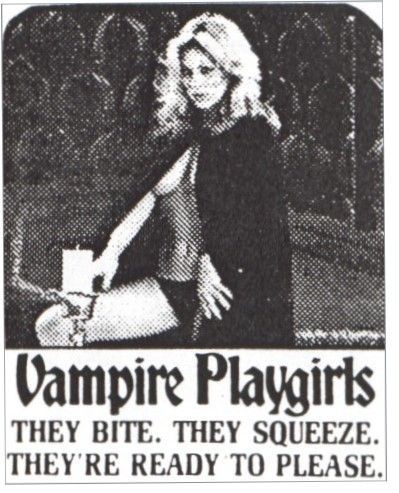Text

Yeah we're legit at the point where mid-2010s free the nipple breastfeeding is okay feminism is leaps and bounds of improvement
11K notes
·
View notes
Text
I've not figured out death rules yet, but as for downed rules, I think you will have 0 move speed and only have a "one final draw" of cards to use before you can't do anything
0 notes
Text
To my past self, no
so i was thinking about

post cancelled i got this notification as i was typing this and i think it’s trying to tell me something
78K notes
·
View notes
Text
Where's the blood and creaching? There's not enough blood and creaching

2K notes
·
View notes
Text
So I realized I didn't talk about magic at all in the previous posts in the system I'm working on so I'll do that now. There's three main types (that can be mixed);
Crystal magic is the simplest and the middle child of the three. Crystals of different colors have elements affiliations based on their colors, and can be activated via pumping energy into/across them and made stronger by being surrounded by similar materials (orange crystal is fire affiliated, can be activated with a flame (or other type of magic), and can be strengthened by surrounding with embers.) The types of crystal are: pink (life/healing), red (magnet/pull), orange (fire/heat), yellow (air/wind), green (poison/disease), aquamarine (ice/cold), dark blue (water/current), purple (electricity/shock), black (null/antimagic), and white (light/blinding).
The oldest and next simplest of the magic types is blood. Blood does also work with other valuable substances procured from living things, but blood is the usual one used for being somewhat easy to get while still powerful (sweat is less dense with power, but could still work in a pinch, same with tears). Blood magic allows the expenditures of ones own or others bodily elements (usually liquid for ease of use) to power magical incantations, these effects usually aren't very visible but are very useful, ie increasing the chance to not be hit by a stray bullet, making oneself more convincing in an argument, heightening ones senses, and so on. Notably blood can be used to fuel either other type, and can also be sacrificed to try and gain favor with gods or other powerful beings, being willing to hurt oneself for a cause shows great commitment, and there's power in that.
Finally there's runic magic, which I am very far from done with, as it's the version of magic here that functions most like programming. Runes are inscribed in a kind of "sequence" with channels connecting them, generally fluids connect and fill these channels and ruins but some solids and gases can do the job just fine too. Runes can either affect what is flowing through them, or the object they are inscribed on dependant on if they have a "subject" or "object" rune at the start of the series. Then an "apply" rune would apply what ever other effects are in the sequence (such as repel, heat, acceleration, deceleration, cool, so on). There are also "modifier" runes that do not apply to the main sequence itself but rather act as a filter for the mainline runes (IE putting a modifier rune for "metal" on the "repel" rune would cause it to only do that effect to metal). Also good to note is that for the purpose of an "object" rune (targeting the object the runes are on), it would target only what the apply rune is on, so if you were to have a bunch of runes in sequence in a gun, but have the apply rune on a bullet with channels from the chamber leading to it, all the effects would apply to the bullet, not the gun.
0 notes
Text
Also, I'm making this system intended for a specific setting I have in mind too, which I'm calling "scattered lands", of which I may also just call this system too.
It's a fantasy setting where tech and magic are often very similar and very connected, a fuzzy line between them. There are guns, notably, often powered by or augmented by types of magic (of which there is Crystal magic, blood magic, and runic magic), there is melee fighting (though due to the aforementioned guns this is often inadvisable) also often augmented by magic, and it's all kinda based around the fact that different forms of power are all valuable (magical power, money, knowledge, time, so on), and that characters build on different ideas have to take advantage of at least one type of power to survive.
There are many "lands" (towns, kingdoms, cities, so on) which are connected by portal-like gateways that are not always active or easy to predict the activity of. Ground travel between these lands is inadvisable as strange beasts lurk on the edges of civilization, and few that witness them ever survive, and those that do are seldom comprehensible enough to tell the tale.
I plan on detailing just one land (and maybe cursory details about neighboring ones) at a time, and the first one I'm doing is "new Nottingham" which is going to be based on the tales of Robin Hood (though, he won't be the main one doing stuff since I gotta make sure players are driving shit forward, but a version of him will be around).
So I've started working on a TTRPG system and decided to better track my progress on it (when I have and do ideas) and to just help me motivate, that I would make a blog about it, so, that's this.
The idea of the system as of now is a somewhat rules-heavy one with a focus on quick combats, mostly investigation and social interaction, and high amounts of customization for character builds. I want to focus it more on RP than mechanics but I can't help myself from just going ham on mechanics too.
I also decided that I should give myself a little challenge, so instead of using dice this system uses a deck of cards to determine the success of actions. There are 4 suites: Clubs (offense), spades (Defense), diamonds (Evasion) and hearts (support). Without any perks chosen, four cards are drawn at the start of a turn, and can be played either individually or combined to form the action (combining increases the value of the action by adding the card values together, though decreases the number of actions done in a turn by using more cards. So you could play, say, 4 offensive actions, or one single very big one, or any amount there in between). When a card is used it is then discarded.
Notably, the cards aren't only for combat (though at a glance they kinda look that way), they can be used for social interaction too, or any tense enough situation that requires a character be using their immediate thoughts and actions to get shit done. With that in mind, a deck should be built to fit the character: so a character who leans into escalating situations or fighting as their first resort would have a deck mostly consisting of offense cards. Whereas a character who mostly tries to help others or criticize flaws may have mostly support cards, and so on. There is a max number of cards to start with in a deck, and the maximum amount is setting dependant (expected stakes and whatnot), though for my first setting here the starting amount is 9-12 cards (less cards can be taken to keep a deck more consistent, but it isn't advised to take the absolute minimum). Also higher numbered cards in a suite can't be taken until lower number ones of the same suite have been taken too.
Between periods of downtime, a deck and discard pile may be shuffled up to twice at any point (though cards in hand at this time are not shuffled with the rest, so it may be best to do when not actively in a tense situation to get the most out of it).
There are also nine core stats, which, in combination with the played cards, cover most possible actions that would require a level of focus or skill to do successfully.
There are already so many rules so far, this isn't all of them, I just hope this helps me think or maybe someone finds these ideas all interesting.
1 note
·
View note
Text
So I've started working on a TTRPG system and decided to better track my progress on it (when I have and do ideas) and to just help me motivate, that I would make a blog about it, so, that's this.
The idea of the system as of now is a somewhat rules-heavy one with a focus on quick combats, mostly investigation and social interaction, and high amounts of customization for character builds. I want to focus it more on RP than mechanics but I can't help myself from just going ham on mechanics too.
I also decided that I should give myself a little challenge, so instead of using dice this system uses a deck of cards to determine the success of actions. There are 4 suites: Clubs (offense), spades (Defense), diamonds (Evasion) and hearts (support). Without any perks chosen, four cards are drawn at the start of a turn, and can be played either individually or combined to form the action (combining increases the value of the action by adding the card values together, though decreases the number of actions done in a turn by using more cards. So you could play, say, 4 offensive actions, or one single very big one, or any amount there in between). When a card is used it is then discarded.
Notably, the cards aren't only for combat (though at a glance they kinda look that way), they can be used for social interaction too, or any tense enough situation that requires a character be using their immediate thoughts and actions to get shit done. With that in mind, a deck should be built to fit the character: so a character who leans into escalating situations or fighting as their first resort would have a deck mostly consisting of offense cards. Whereas a character who mostly tries to help others or criticize flaws may have mostly support cards, and so on. There is a max number of cards to start with in a deck, and the maximum amount is setting dependant (expected stakes and whatnot), though for my first setting here the starting amount is 9-12 cards (less cards can be taken to keep a deck more consistent, but it isn't advised to take the absolute minimum). Also higher numbered cards in a suite can't be taken until lower number ones of the same suite have been taken too.
Between periods of downtime, a deck and discard pile may be shuffled up to twice at any point (though cards in hand at this time are not shuffled with the rest, so it may be best to do when not actively in a tense situation to get the most out of it).
There are also nine core stats, which, in combination with the played cards, cover most possible actions that would require a level of focus or skill to do successfully.
There are already so many rules so far, this isn't all of them, I just hope this helps me think or maybe someone finds these ideas all interesting.
1 note
·
View note